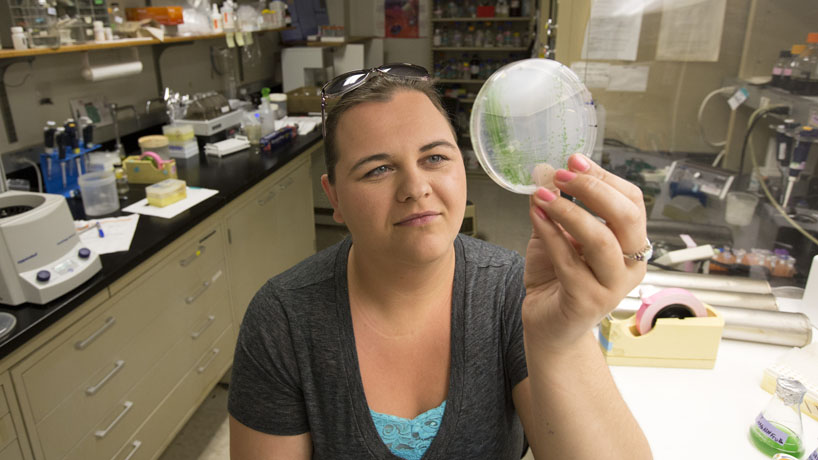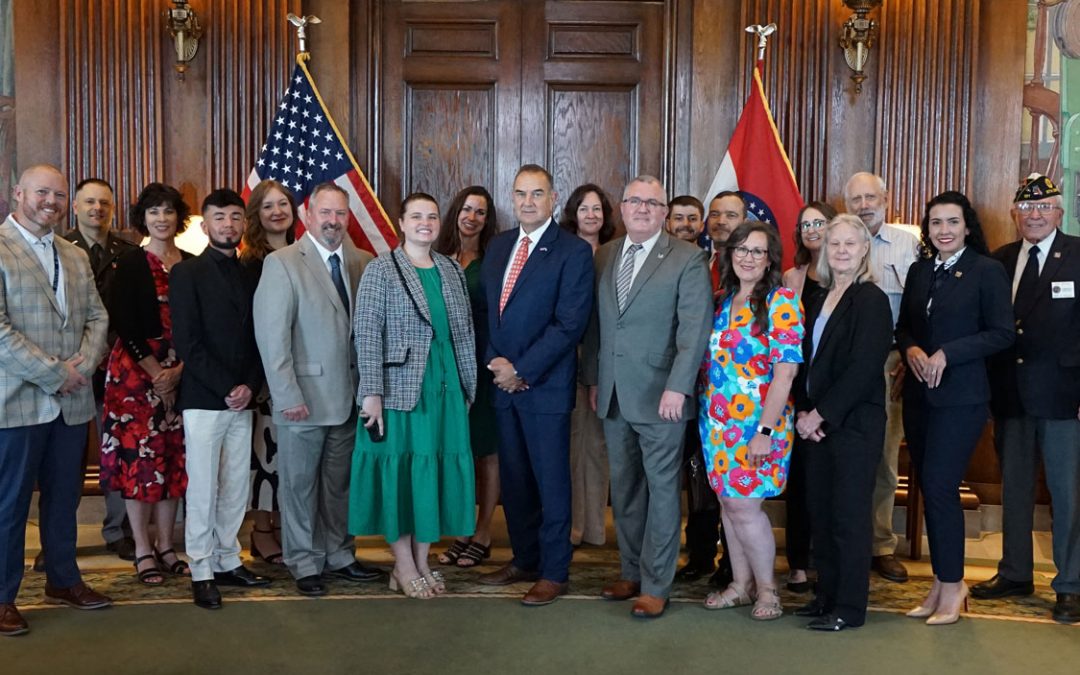
Susan Monnig received a $1,000 research grant from UMSL’s College of Arts and Sciences last semester to study a species of cyanobacteria, a blue-green algae. (Photo by August Jennewein)
Susan Monnig attributes her early interest in science to genetics.
“My mother was a research scientist at Washington University in St. Louis,” said Monnig. “I used to hang out in the lab with her when I was a little girl and even then it seemed like interesting work. I wanted to learn more.”
Monnig earned a bachelor’s degree in biochemistry and biotechnology in May from the University of Missouri–St. Louis. She was one of nine undergraduate students to receive a $1,000 research grant from the College of Arts and Sciences.
She used the grant during the spring semester when she was enrolled in both the undergraduate and graduate biochemistry and biotechnology programs. It was there she continued her research on the genetics of Anabaena variabilis.
“It’s a species of cyanobacteria, a blue-green bacteria or algae,” Monnig explained. “When grown without nitrogen in the growth medium it uses nitrogen in the air and converts it to a form the cell can use, producing hydrogen as a byproduct. That byproduct is a potential alternative to fossil fuel.”
The process is something Teresa Thiel, professor of biology and associate dean of the College of Arts and Sciences, has been working on for many years. She received a Fulbright award in 2010 to research the symbiotic relationship of cyanobacteria with plants in order to produce hydrogen as an alternative energy source. She conducted the research at the University of Leeds in England.
Monnig started working in Thiel’s lab over a year ago identifying the DNA gene expression elements of nifP1, an accessory protein to one of three nitrogen fixation systems in the Anabaena.
“I’ve always been interested in renewable fuel resources and when I discovered that Dr. Thiel was working on the process, I wanted to talk with her about it and find out what she was doing,” Monnig said. “So I took her class and volunteered in her lab. When she asked me if I wanted to work in the lab, I jumped at the chance.”
Monnig is working in Thiel’s lab during the summer. When classes begin in the fall, she hopes to get a job as a teaching assistant or research assistant in the lab. It should take another year and half for her to complete her master’s degree.
Monnig, 27, transferred to UMSL in 2012 after attending several other colleges and universities. She is excited about her work with a biofuel as a possible energy source and loves the hands-on experiences she is getting at UMSL.
“That kind of experience is invaluable, no matter what industry you go into,” she said. “I’ll be looking at careers in research with big companies such as Monsanto or Sigma-Aldrich or big universities or government jobs. Couple the broad knowledge I’ve gained from the study of biology, chemistry and biotechnology along with all of the laboratory experience I’m getting, I should be able to find a career I really want.”















